Pandemic-Inspired Innovations Make for the Best Wolfram Summer School Yet
For more on Wolfram’s summer education programs, read our post about the Wolfram Summer Camp.
The 18th annual Wolfram Summer School has just thrown its graduation party in High Fidelity, a virtual world augmented with spatial audio. Students and faculty sang together during karaoke with a DJ and jukebox, chatted away mixing techspeak and humor, said farewells and had a ball celebrating the completion of the program. Due to the COVID-19 pandemic, we chose to make our summer programs more accessible to the students and faculty from all corners of the world—this year from 25 countries and all populated continents.
Switching to a purely online format allowed us to lower the cost, provide stronger financial aid and use innovative learning technologies and methods, thus turning the tables on pandemic times, getting more from less. What comes to mind is going far beyond lemonade, after life gave us lemons. As a result, this year was the largest Summer School by student volume, and we expanded educational directions with a new Fundamental Physics track to engage students in the research of the recently unveiled Wolfram Physics Project.
Wolfram Summer School participants joined this year’s virtual event from all over the world.
The value of education is seen in the impact it has on students’ lives. The Wolfram Summer School takes students from basic familiarity to finishing significant projects in just three weeks. From the program’s centerpiece—the completion of an innovative project—to a wide range of benefits like career boosts and opportunities leading to internships and employment, the Wolfram Summer School has been helping students for 18 years. The Summer School also gives students the chance to network with a diverse crowd of professionals from both within and without Wolfram companies. Students gain practical scientific and computational knowledge that can be applied in the real world, grow their communication skills and experience joyful and exciting education.
Practical Achievements
Practical achievement is the key focus of the Summer School, and this year, students had plenty. The crown jewel of the program is the completion, presentation and publication of an advanced project, which is uniquely selected for each student though a sophisticated procedure that spans the time from the student application interview to a personal meeting with CEO Stephen Wolfram and faculty at the school. All 77 students who completed the three-week curriculum have published technical articles on our corporate social network Wolfram Community. You can take a look at the spectacular gallery of project highlights from the Summer School’s Tumblr—what a wide variety and complexity of subjects!
And this is just the first glance at how thoroughly thought-out our strategic approach to professional development is. After networking with a select student body, the publication of students’ work on the company’s social network connects them further with a growing community of professionals currently exceeding 26,000 members. This opens many opportunities for students, from networking with a global crowd of likeminded technologists and scientists to discovering career opportunities with Wolfram and third-party companies. Helping the students make an actual publication at the end of the program is not only planting the flag of the final accomplishment, but the publication also lives forever at a unique public hyperlink that can be pointed to from a resume, personal website or other media important to the student for promotion of the project and career impact. Moreover, Wolfram provides students with various other publication media to communicate their achievements to a wider audience.
One such medium is the the Wolfram Function Repository. If you have ever thought of publishing a computational idea, you should consider this public resource that hosts an expanding collection of standalone algorithms contributed by the user community. It makes publications simple and referable with an easy submission process and reviews by Wolfram staff. There were more than 10 submissions by the students this year. A few are already through the review process and finalized as official publications that, along with Wolfram Community articles, feature the students’ names and publication dates—a crucial part of any reference. Among the already published ones are:
- OpticalFieldModeling by Julián Laverde from the project Non-Paraxial Optical Field Modeling
- PerturbedCausalGraph by William Yam from the project Finding Gravitational Waves in Wolfram Models
- SymbolNameTranslate by Renan Soares Germano from the project Textually Describing Wolfram Language Expressions
- PartitionByCooccurence by Ryan Bell from the project Constructing Directed Graphs of Email Conversations
Excerpts from the first two are shown here to highlight the nature of the publications that is streamlined with innovative templating technology, one of many features of Wolfram Notebooks that students get accustomed to and can use as a universal computational exploration and communication medium.

In addition to Wolfram Community articles, which are narratives about key highlights in a project’s development, the students also archive their Wolfram Language code, data and auxiliary files in the Notebook Archive as a permanent record of their work. These are just some examples of immediate output at the end of the three-week program. Some of the projects will continue after the school and might result in additional publication, including with arXiv, peer-reviewed journals and various Wolfram media sites.
Stephen Wolfram’s Leadership
Stephen Wolfram’s leadership and complete dedication to the school makes it a unique experience for the attendees. Since he founded the school in 2003, Stephen has devoted much of his time to the school during its progress every year. Being a renowned scientist, businessman and the creator of the technologies and sciences we teach at the school, he gives students an exclusive perspective and firsthand knowledge about the professional world and beyond. He helps to define a project for every student via a carefully crafted procedure, which involves the understanding of students’ backgrounds and interests to match them with innovative, modern computational projects—often open questions. Many projects actually come directly from Stephen’s ever-expanding project lists, designed specifically for our summer programs. He also checks on the projects’ progress, communicates with the students casually and gives talks and Q&As on numerous subjects.
This year, in addition to a series of talks on the Wolfram Physics Project, Stephen led a series of fun, illuminating events. For instance, he ran a trivia night where he prepared and asked the students questions addressing a diverse range of human knowledge. By competing and answering, the students naturally revealed their background interests, and this of course was an efficient and entertaining way to get to know each other better. Among other events by Stephen were an opening keynote; various Q&As about entrepreneurship, insights into the future, people, ideas and more; and even a tour around his house showing various objects of curiosity that he has collected over the years. Take a look at just a few random questions students asked Stephen this year:

The Program Design
The program design has been refined through the 18 generations of its annual installment. We restructured this year in order to accommodate online learning. To make distance learning work, we utilized innovative tools and strategies such as a custom-designed portal based on Wolfram Cloud systems for the distribution and collection of all pertinent school content. Additionally, we used High Fidelity for social gatherings, Slack for managing teams and fast information flow, Zoom for conferencing, Pathable for scheduling and various Wolfram technologies for project development. Careful fusion of all of this vanguard tech allowed the program to blossom and efficiently support our faculty and student body in their logistic and learning endeavors.
The Wolfram Summer School is a computational project–based environment that promotes a hands-on approach to open-ended, challenging problems similar to those that students might face in the real world. It allows the students to quickly learn practical knowledge that they will apply at their places of work and study. Each student is assigned a unique project matched with their background as well as a mentor for continuous guidance. The mentor and student have touchpoints every day to check the progress, define next steps and work together through difficult parts.
To support the rapid growth of programming and scientific skills necessary for project completion, a carefully designed curriculum provides an intense, subject-rich course of lectures that start with essential Wolfram Language training. Training continues into applied areas of data science, machine learning, image processing, high-performance computing, graphs and networks, blockchains, neural networks, A New Kind of Science, the Wolfram Physics Project and more.
Lectures were broadcast live via Zoom. To make the learning active, we had dedicated Slack channels where questions from students were taken in real time and addressed by a speedy team of six helpful teaching assistants. Whatever they could not answer, they would highlight for the lecturer to address in the final Q&A session. There was plenty of sci-fi humor going around, and calls to the teaching assistants often got accompanied with Batsignal emoji responses akin to the Batman comics.
Managing Time Zones
One of the challenges for the online program was the wide range of time zones, as students attended from many different locations. While we initially asked all students to commit to a 10am–10pm EDT daily schedule, we were determined to accommodate their normal life routines as much as possible to make them comfortable and able to focus on education in a healthy way. We recorded all lectures, which usually ran during the morning session, and made the majority of the recordings available that same day for people who could not attend.
We carefully analyzed the students’ data as well. This is one of the visualizations we built that assumes a standard working window of 8am–5pm in a student’s local time zone and converts it to EDT. Then we counted students in one-hour bins if their normal working window in local time overlapped with a particular bin in EDT. We can obviously see the peaks corresponding to the Americas vs. Europe and Asia. Besides recording lectures, to accommodate non-American time zones we introduced virtual office hours from our faculty members who also reside in diverse time zones. There was also a lot of support from the teaching assistant team and both faculty-to-student and student-to-student help in well-structured Slack channels.

Increasing Engagement
We used the online nature of the school this year to our advantage and invited many experts who could not attend otherwise to serve as faculty and guest lecturers. Brian Silverman, one of the external guests, was so kind as to hang out with the students and faculty throughout the whole program and was the inspiration in many mind-boggling conversations. Others include prolific Wolfram technology adepts from around the world and lead architects from Wolfram Research and Wolfram|Alpha R&D who actually develop the cutting-edge Wolfram technologies. In this way, students were exposed to both the gritty real-world practitioner and the insider-designer views of the tech.
One of the other interesting things we did to support our students was to open doors to the school’s Slack workspace much earlier than the school started to engage the students and faculty in social and learning activities whenever they could drop by. In a wonderful, relaxed way, this built the school community and got it ready for an intense start.
Final Presentations
At the end of the program, the students presented their work in the oral and poster sessions. The oral session is designed in an elevator-pitch style in which students have just a few minutes to tell the audience what their project was about. They train their public speaking skills and rehearse with mentors and teaching assistants. The oral presentations ran exceptionally smoothly and familiarized everyone with what to check out in detail during the poster session, which took place in the High Fidelity environment.
Along with the mingling crowd of students and faculty, the poster session also featured various guests from Wolfram Research departments, including R&D, partnerships, HR and others, who discussed with the students their projects and future career paths. The program closed with a graduation ceremony and party where everyone realized that time had flown too quickly and we already missed each other.
No Fun—No Work!
Entertainment and socializing are essential parts of a healthy student mindset and the ability to finish a challenging educational program. We all need to relax sometimes to recuperate and come back to learning with a refreshed mind. On a university campus, it is easier to socialize, play games, go for dinner or simply take a walk with a friend or two. I personally organized quite a few basketball games throughout my school years, which was always a lot of fun and brought students and faculty much closer by erasing formal boundaries. I always recommend going regularly to the gym or pool.
So what could we do in pandemic times? We could leave the leisure part to the students’ own devices, but that would not have been a good strategy for fostering the community and living a unique memorable experience as a collective whole. No worries—we had a few tricks up our sleeve to combat physical isolation, of course led by advanced tech!
First of all, if you manage students via a good team chat software, you must have a #random or #social channel for what Slack playfully labels as a place for “water cooler conversations.” You can add more dedicated channels for games, a movie club and so on to focus and spark conversations by interest. But this was only the beginning for us. We were fortunate that Stephen had exclusive access to and a vision for the school’s usage of the High Fidelity virtual world, augmented with spatial audio. In High Fidelity, you can spatially navigate and understand the direction and proximity of audio coming to you from numerous other people sharing the space. We were connected with High Fidelity developers and had the freedom to tune our environment in terms of of sound attenuation, room maps, interactive links and background music. Here is a sample of a few maps we used:
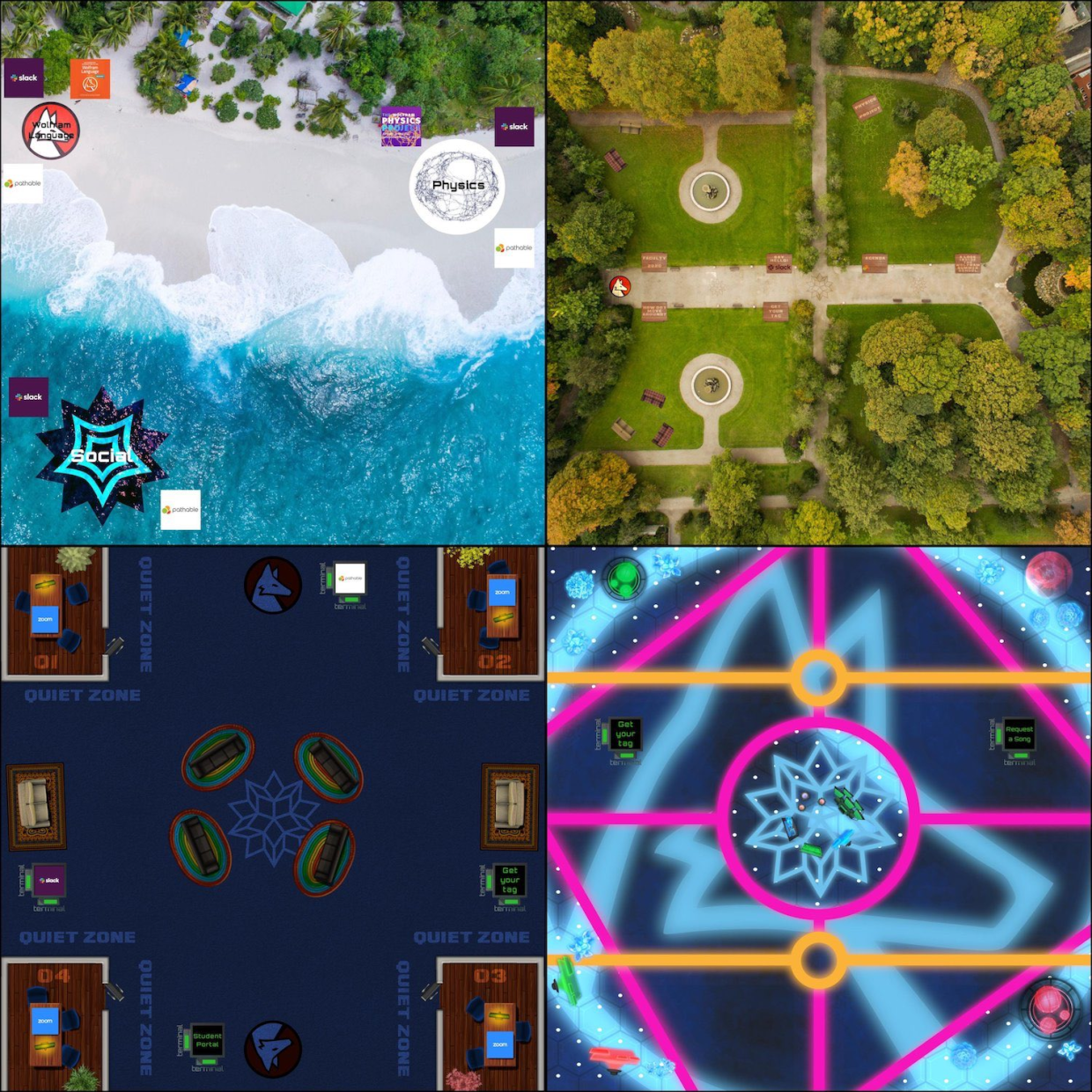
In the next image, you can actually see some parts of the maps densely populated with students and faculty. On the left, Stephen casually stopped by to chat with the students. The right one is the graduation party, where we even managed to set up karaoke. The little colored bells around people’s avatars indicate the direction in which the person is speaking and listening. We had the High Fidelity space open continuously for casual interactions. Our teaching assistants and mentors often hung out there in case students preferred to start an audio conversation; it was easy to then use Slack in parallel or jump to Zoom.

Another excellent form of entertainment was provided by a great educator, Mark Greenberg, who hosted via Zoom his own invention, a very popular trivia game called Chicken Scratch. All in all, using Slack, Zoom and High Fidelity, we had the time and means to take the occasional break and get to know each other better.
Students and Projects
Students and their projects are truly the unique centerpiece of the school. Taking a closer look at the students’ stories and project ideas is important to comprehend the scope of the program. I’ve summarized a couple exemplary cases, including direct quotes from the students, to give an idea of what their intellectual journeys at the school are really like. For more, please visit the school’s group on Wolfram Community or the school’s Tumblr.
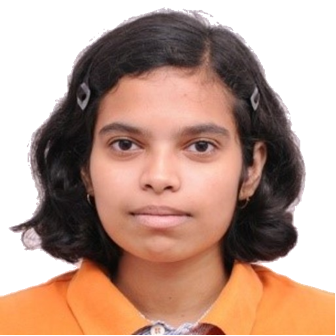
Cellular Automata on 3D Lattices by Radhika Prasad, India

Radhika Prasad is pursuing her master’s degree at the Indian Institute of Technology in Kanpur. In her own words, she “has been interested in physics since [her high]-school days. Within physics, [her] interests lie in optics and quantum mechanics. Besides enjoying physics and programming, [her] hobbies occupy a wide range of the spectrum, including sports (football, tennis, table tennis), Indian classical music (Indian bamboo flute), photography and solving Rubik’s cube and various related puzzles.” The aim of Radhika’s project was to work with 3D lattices and perform computational tasks on the lattice elements. A nice way to visualize the computation is to run cellular automata on the lattices. This research provides powerful means for formulating numerous 3D physical phenomena in the framework of computational models.

Towards Universal Robotics by Douw Marx, South Africa

Douw Marx is a mechanical engineer who is conducting research in the field of condition-based maintenance at the University of Pretoria, South Africa. In his own words, he is “an advocate for a computational approach to problem solving and considers [his] programming ability to be a key tool for finding innovative solutions to engineering problems. [Douw] like[s] to consider alternative solutions to the problems that are considered to be optimally solved. In [his] free time, [he] enjoys hiking, making music and woodworking.” In the words of his mentor, Philip Maymin, “Douw made what to my mind is effectively groundbreaking research in universal modular robotics.” Douw’s project considered ways in which arbitrary motion and force as well as universal computation could be implemented in order to achieve general robotics. He researched approaches that simulate the function of any currently existing robot with a set of identical programmable robotic modules.
Life-Changing Merits
The merits of the school have manifested themselves clearly since the school’s foundation in 2003. We know we’re doing this right when we get positive feedback and appreciation. The career opportunities and boosts are not just marketing cliché here, but a reality. The school has a remarkable impact on many students’ lives. To give you an example, many original Wolfram R&D members, who later helped to form a machine learning and neural networks team, first had been students at the Wolfram Summer School and worked at the school on advanced data science projects.
My own professional path is a perfect example of how the Summer School changes lives. When I came to the Summer School as a student in 2010, I was a professor at the City University of New York. Those three weeks were life-changing enough for me to completely change my career path, leave academia and join Wolfram Research. Now I serve as the director of community engagement and take part in many exhilarating projects, including the development and management of the corporate social network, Wolfram Community. I returned to the Summer School as a faculty member every year until 2017, when I filled the shoes of the former academic director.
Takeaways for the Future
Relationships, both of the students with each other and with Wolfram, last long after the Summer School is over. Some will return to the school, some will get internships or employment, some will continue projects and make publications, and some will just keep in touch for potential opportunities.
We also introduce our students to other companies who are interested in their expertise in Wolfram technologies, which are widely used in industry and academia around the world. One of the most indispensable benefits of the school is its diversity of student ages, cultures, countries, backgrounds and career approaches, from early undergrads to established professionals. For instance, John Cromwell, a professor of surgery at the University of Iowa whose work was featured in The Wall Street Journal, developed this year a machine learning application for predicting surgical site infections and is considering turning it into a real medical application that helps people.
We’re honored to have hosted another talented and diverse group of students. We’re also thankful that both staff and students were able to adapt to the unforeseen changes the Summer School underwent this year. Participants certainly have bright futures ahead, and we look forward to seeing more of their contributions and ways they can incorporate Wolfram technology in their fields.
| For more hands-on Wolfram Language courses and workshops, check out the latest Wolfram U events. |


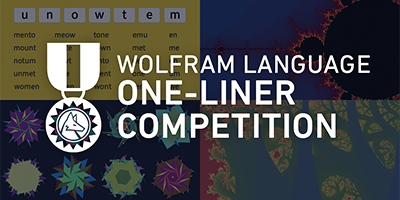
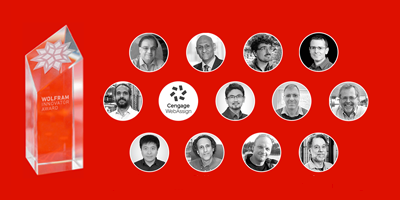
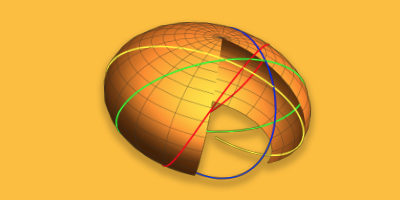
Comments